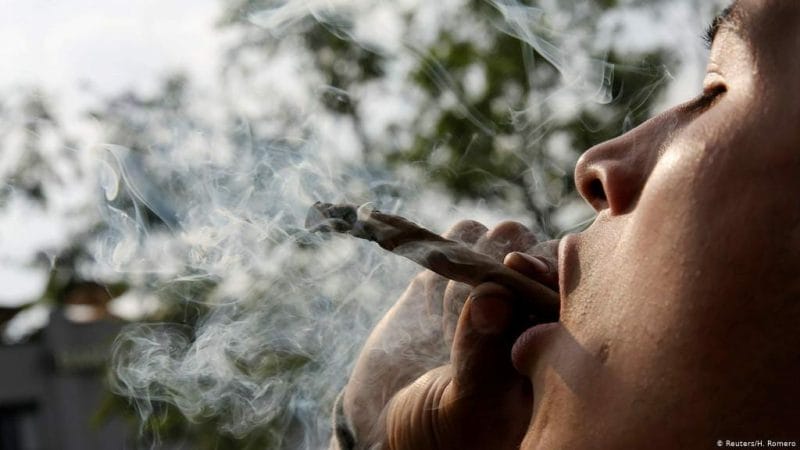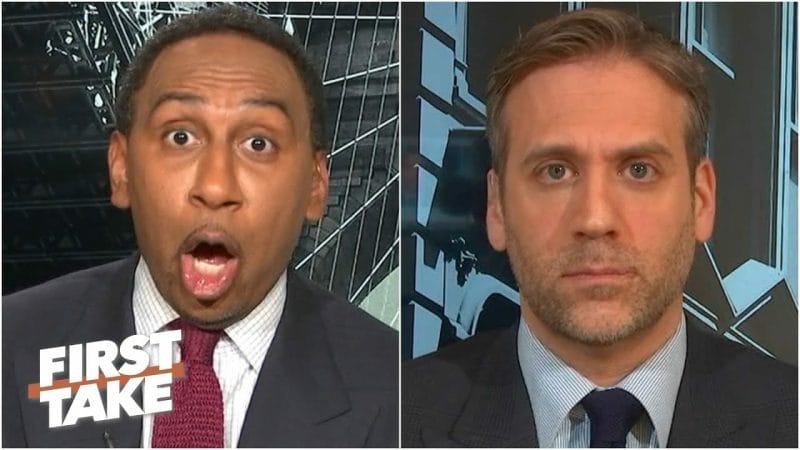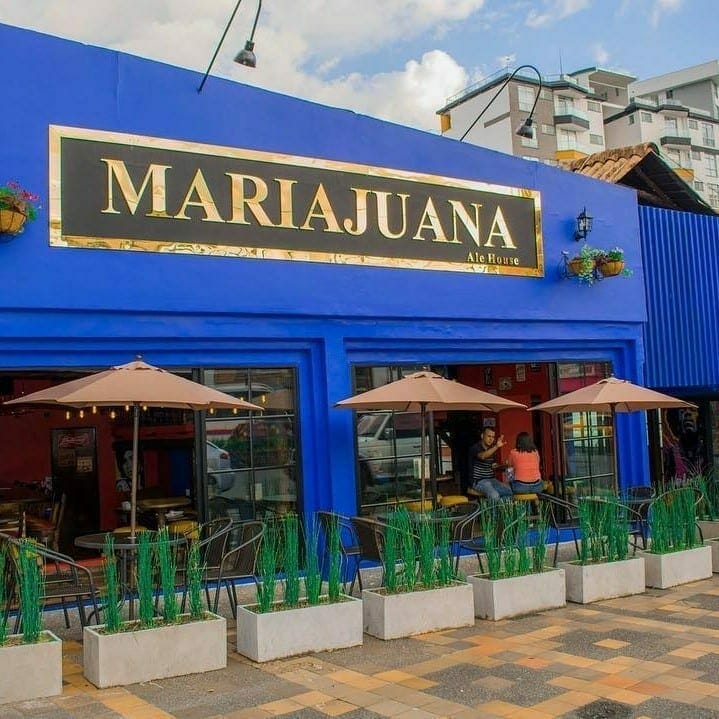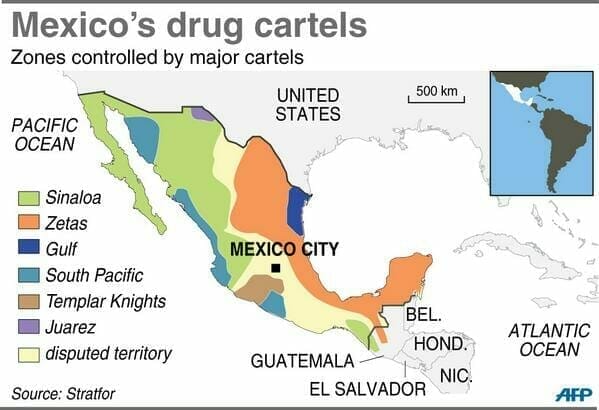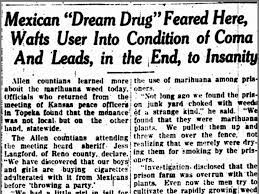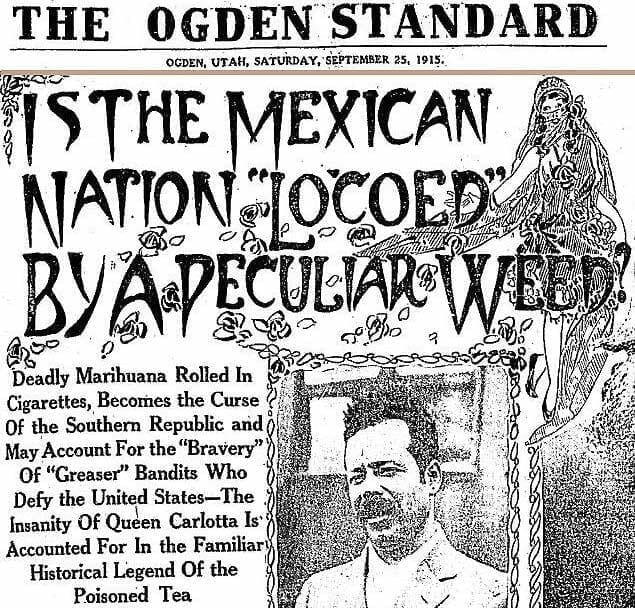The good weed
I knocked on Zed’s big wooden door unsure of what to expect.
Zed was a retired dude from Oregon who made claims like knowing the Manson family in the ’60s and being stationed as some sort of engineer on a ship off the coast of California during the potential Y2K crash in 2000. Zed wore long socks up to his knees, short shorts, a Hawaiian shirt, unbuttoned with a long gray ponytail. Zed left the USA and retired to a small town in the mountains of Mexico shortly after retirement, a common story as Mexico is the number one retirement destination for both Canadians and Americans. At the age of 19, I was far from retirement, I was mostly just roaming.
So why was I here, knocking on this man’s door? According to a few in the town, Zed was the guy who had THE GOOD WEED. He opened the door into a lush garden full of bright tropical vegetation and fountains, with 4 or 5 cats roaming around. I walked up the cobblestone walkway and we went into the house, he pulled out an empty cardboard box and asked if an ounce was OK. He said first one’s free. Zed was cool.
A week or so passed and I was ready to get some more of Zed’s stash, and I would pay cash this time. I knocked on his door again, he opened it, but something was off, he looked different this time. I don’t want to say he looked like Henry at the end of Goodfellas driving away from the helicopters, but kinda.
He said he wasn’t in the weed game anymore and that I needed to stop coming around. Cartels were all over the area causing trouble. Military helicopters were flying around and they found 10 decapitated heads in a car on the side of the highway just outside of town the night before. And this wasn’t one of Zed’s Manson stories either. The military helicopters had actually woken me up that morning. Geographically we were smack dab in the middle of two competing drug cartels. Zed was spooked, naturally. So I was going to have to find another weed source.
I walked past a park and found a big group of dudes playing football (soccer). I joined in and realized one of these guys probably has a weed connection. I was right, although, I’m not sure if it was weed or hay, because that stuff was awful. I also got some similar quality bud from a local gardener – again, not great. You need to smoke about 2 grams to feel anything, and by the end of it, you just have a headache. I have returned to Mexico multiple times since, and most recently got by with some CBD chocolate I bought at the Gypsea Market along with some kombucha and organic oatmeal soap.
https://equity.guru/2021/03/02/is-there-an-undervalued-cannabis-market-in-australia-right-now-and-does-it-matter/
Investors
Many speculators believe the cannabis industry in Mexico will mostly be just low-cost exports, without a lot of infrastructure in the country, much like other Latin American countries that grow a ton of cannabis, like Colombia, despite it remaining illegally for recreational purposes. I spent 4 months in Colombia in 2018/2019, and while I did see a number of weed-related stores, mainly vapes – I didn’t see any THC products out in the open as recreational weed is still illegal, although weed is definitely a part of the culture down there, and medical cannabis is legal.
You would see stuff like this pretty frequently. It’s an alehouse called’ Mariajuana’ that doesn’t sell weed. Maybe it’s a bat signal and they do after hours or something? I don’t know, seems too on the nose.
Bullish investors are hopeful that established cannabis companies who already have some routes in the country will be able to capitalize on the new 129 million person market.
Khiron Life Sciences (KHRN.V) released a nutraceutical CBD line in Mexico through the company’s subsidiary based in Mexico, Kuida Life Mexico. Dietary supplements are a big industry in Mexico and Khrion has a distribution deal with Farmalisto to put their CBD products on shelves. Mexico’s former President Vincente Fox sits on Khiron’s board and has been bullish on legalizing cannabis in Mexico and having Khiron as a major player there. The Company plans to deploy its ZereniaTM medical cannabis clinics and telehealth strategy in Mexico, building on the success of its vertical integration strategy in Colombia. Last year Khiron entered into an agreement with Tecnologico de Monterrey, the leading university in Mexico, to educate physicians across Latin America, in advance of the impending regulations in Mexico
In 2018, Aurora (ACB.Q) acquired Farmacias Magistrales, the first cannabis company to receive a license to import, manufacture, store, and distribute cannabis in Mexico. At the time of the acquisition, Farmacias was entirely geared to support the medical marijuana community, with 12,000 sq/ft of growing space, and access to up to 80,000 retail points. The company became Mexico’s first and only federally licensed importer to date of raw materials containing THC, gaining the necessary licenses, facilities, and permissions to import raw THC material, and manufacture, store, and distribute medical cannabis products.
Canopy’s (CGC.Q) international brand Spectrum Cannabis is well established in South America specifically Colombia, Peru, and Chile. The company has mentioned transitioning Spectrum operations to Mexico to get ahead of legalization. The company recently told Reuters it plans to take part in “the responsible development of this new market” in Mexico. Canopy’s largest shareholder is Constellation Brands (STZ.Q) who own Mexico’s flagship beer Corona. While there haven’t been any definitive plans on creating cannabis beer like many expected, Canopy will surely have access to Constellation’s massive infrastructure within the country. I would also assume that a company of that scale would have a lot of relevant connections to scale business operations.
Pharmacielo (PCLO.V) the Colombian-based cannabis producer is creating its Mexican division Pharmacielo Mexico with hopes of being the main player selling cannabis extracts within the Mexican market. The company expects to receive Mexican GMP certification during the second quarter of 2021.
I’m sure many foreign companies will be successful either by cutting their growth costs for exports or selling directly to the Mexican market. However, Mexico poses an interesting potential conflict point – the cartels.
Walking away from $14B USD?
If Mexico legalizes cannabis it will be the largest weed market in the world, and it’s on the verge of happening. Earlier this month lawmakers passed a bill for the legalization of cannabis. The 316-to-129 vote in Mexico’s lower house, came more than two years after the Mexican Supreme Court ruled that the country’s ban on recreational marijuana was unconstitutional and more than three years after the country legalized medicinal cannabis. In April, Mexico’s Senate is expected to approve the bill with Mexican President Andres Manuel Lopez Obrador already signaling his support. However, there remain concerns about the bill.
How will this new bill affect the current cannabis supply chain? Will there be extra protections now for Mexican farmers who often get caught in the middle of cartel-related conflicts? Nope. I assume the cartel to continue flexing its muscle where it can, inclusion isn’t exactly one of the cornerstones of the cartel. And look at how much land area the cartel already controls. No one has really come up with any great answers so far, fighting the cartels has been costly, at least 150,000 people have been killed since 2006 when the Mexican government began its war on the cartels, and crime is still on the rise.
Critics of the bill say it is unlikely to really affect Mexico’s increasing rates of cartel violence, and argue that nearly two-thirds of Mexican citizens oppose legalizing marijuana, according to recent polling. Proceeds from Mexico’s illegal weed market are around $14B USD annually, which up until now have been controlled by the cartels. Will they walk away from these profits? Probably not. Yes, drugs like cocaine, heroin, and fentanyl offer higher margins and bigger gains, but $14B USD is still a lot to walk away from. Unless they can broker some kind of deal with the government, I don’t see much of their business changing in the near future.
https://equity.guru/2021/02/18/red-light-holland-trip-cn-selling-psychedelics-in-brazil/
Quality is also an issue, and according to VICE many young cannabis users in Mexico fear that once legalization comes it will look just like their beer industry, with a few big players churning out the same cheap product. This could very well be the case, Canopy Growth’s biggest shareholder is Constellation Brands, the owner of Corona. According to VICE, in the bigger Mexican cities, there are several underground cannabis clubs in the black market that offer high-quality upscale bud… if you know a guy. It’s believed that Mexico’s biggest cannabis enthusiasts will most likely continue to buy in the black market as they don’t believe the big companies will be able to grow cannabis to the level of quality they are used to from master growers within the country. The cartels are on this and are ramping up production and adjusting to the new landscape accordingly. If Canopy wants to sell the cheapest weed possibly the cartel can compete on quality and price as they will have fewer restrictions than a licensed company, and I’m sure they know market and what it wants better than any research firm these pubco’s are going to hire.
Making Marihuana more Mexican
Mexico and the United States have a complicated relationship, one of the key conflicts being the war on drugs. Yes, drugs flooding into the US from Mexico is a major concern, but the US has had a poor track record with Mexico/US relations on the issue. Former President Trump’s comments about Mexicans in 2016 were unfortunately only a small blip in a decades-long story. In the 1900s, an influx of Mexican immigrants came to the US escaping political unrest back home, and cannabis was popular in their community. The Spanish word for the plant started to become mainstream. Marijuana. Or as it was spelled at that time, marihuana, with an “H”. This is when the crazy headlines about the drug began to appear. Some very powerful people in media and government wanted cannabis made illegal for a multitude of reasons, namely financial as the hemp industry was taking away profits from the newspaper industry. Hemp seems harmless, so they tied it to marijuana.
In 1936, the propaganda film ‘Reefer Madness’ was released, showing wild teenagers smoking weed for the first time, leading to a series of events involving hallucination, attempted rape, and murder. The media ran with this, portraying it as a gateway drug. Around the same time, Harry Anslinger – the founding commissioner of the Federal Bureau of Narcotics became one of the loudest voices turning the conversations from wild teenagers to ‘degenerate Mexicans.’
“I wish I could show you what a small marihuana cigarette can do to our degenerate Spanish-speaking residents. That’s why our problem is so great, the greatest percentage of our population is composed of Spanish-speaking persons, most of who are low mentally.” — Harry Anslinger, Founding Commissioner, The Federal Bureau of Narcotics
In 1937 US Congress passed the Marijuana Tax Act, effectively criminalizing the drug. It restricted possession only to the individuals who paid an excise tax for certain authorized medical and industrial uses. Things got better for a bit, JFK liked weed, and the 60’s counterculture was high on it too. Things took a turn for the worst as a new decade began. In 1971, President Richard Nixon made cannabis a Schedule I drug, the harshest possible classification. And while decriminalization efforts happened immediately after, they largely died off, at least politically, until a few years ago. Nixon was cut from the same cloth as Anslinger, one of his top advisors told Harper’s Magazine with regards to cannabis,
You want to know what this was really all about. The Nixon campaign in 1968, and the Nixon White House after that, had two enemies: the antiwar left and black people. You understand what I’m saying? We knew we couldn’t make it illegal to be either against the war or black, but by getting the public to associate the hippies with marijuana and blacks with heroin. And then criminalizing both heavily, we could disrupt those communities. We could arrest their leaders. raid their homes, break up their meetings, and vilify them night after night on the evening news. Did we know we were lying about the drugs? Of course we did.
Just imagine Nixon’s face today if he knew and that Mexico is going to legalize it. He might say, well of course they are, they love that stuff! But what might surprise him and the Anslingers of the world is in America today weed is actually really popular. Even 56% of Republicans support cannabis legalization, and of the general population, 67% of Americans support it, with only 8% wanting it to remain illegal.
After decades of the US and its media complex conspiring against Mexico, trying to make its history of cannabis all about rape and murder Mexico has finally embraced the drug and said you know what, fuck it, we do have a lot of weed, and we are going to legalize it and have our government profit off it before you do. Free market capitalism. Take that America with your stupid inconsistent state-run weed rules and inability to federally legalize.
Sorry Nixon, the hippies, and Mexicans won.

